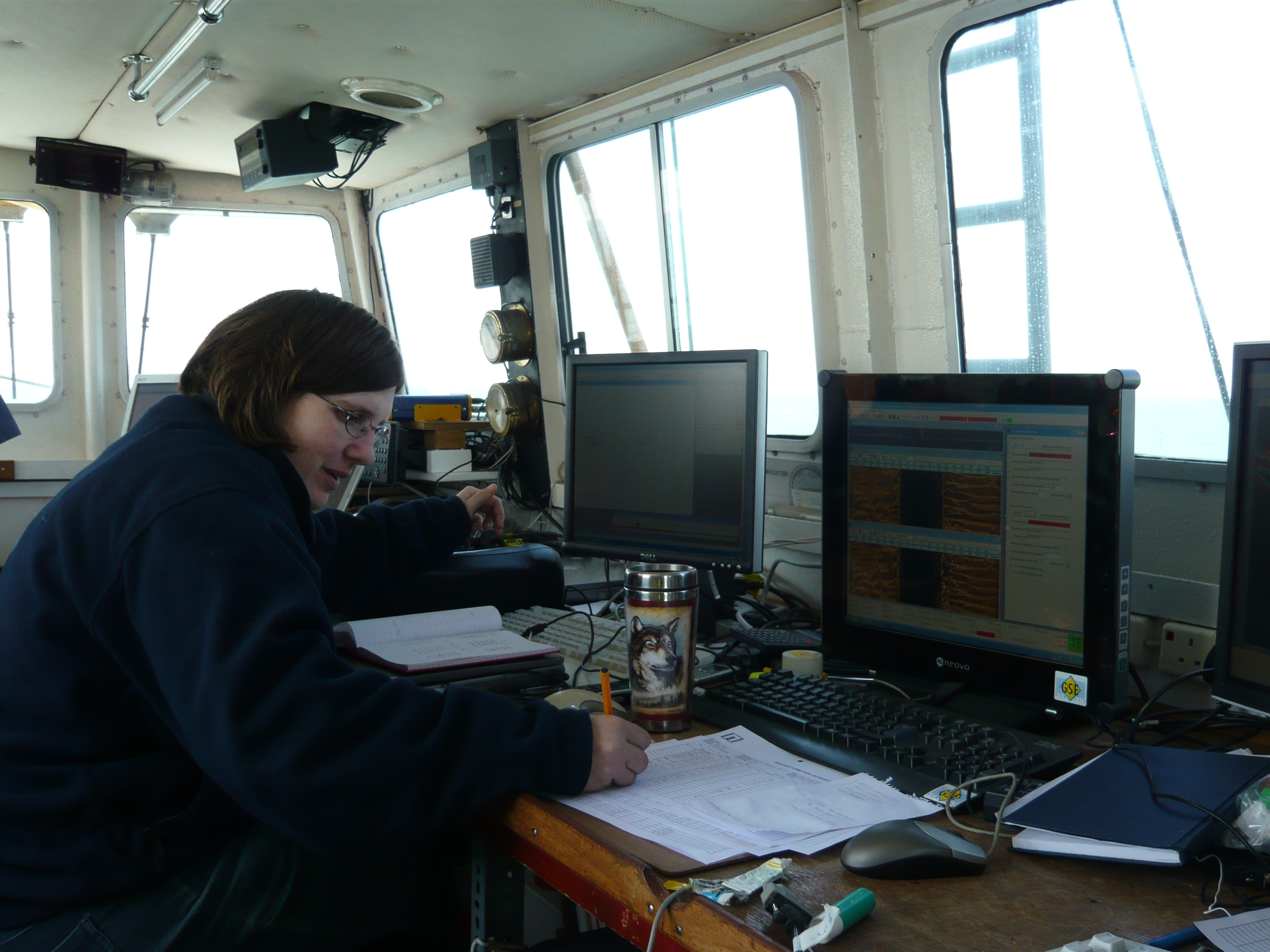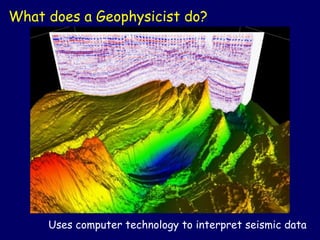All Categories
Featured
Table of Contents
What Is Geophysics And What Do Geophysicists Do? in Glendalough Aus 2022
This work is progressively contracted out, so consultancies offer another source of work. Consultancy firms vary in size, from very little business to large multinationals. Some consultancies are quite specialised in utilizing specific geophysical strategies or working in particular places, while others use a more varied range of services to their customers.
The extraction of gas from land fill websites is another location of employment and this may grow in the future. Exploration companies might undertake work for building companies, water business, mining business and environmental firms, so geophysicists might be used in any of these settings. Other companies include: geological surveysgovernment bodies and agenciesuniversities and research institutes.


Jobs might be noted in the oil and gas sector press. Recruitment is impacted by oil price variations and the level of competitors for positions differs depending upon this. Professions Days, which cover the complete variety of geoscience careers and are generally attended by a number of crucial market employers, are run by The Geological Society.
Career Guide: Geophysicist in Parkwood Aus 2021
A few of the big oil and gas companies offer a complete two-year structured training programme across the breadth of geophysics, consisting of the opportunity to experience operate in various groups before specialising in one location. Your training might include work on: existing wellsmagnetic and gravitational potential field information analysisresearchrock analysis. It's more normal for your preliminary training to be offered on the task.

There might be a probationary duration during which you work alongside a knowledgeable coworker. Competency-based appraisals occur routinely in the majority of companies. In smaller sized companies, and for academic posts, there is unlikely to be any official training - you'll be expected to begin work straightaway and get skills as you go along.
If you work for a smaller sized company, you might discover that you need to take obligation for organizing and moneying your own development and training. If you have a geology degree, membership of The Geological Society can be helpful for networking and for keeping up to date with the market.
Geophysical Survey And Remote Sensing Techniques in Kinross Oz 2023
You may also find it helpful to join the PESGB (The Petroleum Exploration Society of Great Britain, which has a geophysics special interest group. After a probationary period, and once you have actually acquired some experience, you might progress to senior geophysicist, then team leader and then into a senior role in management.
The ease of motion between roles depends on the business structure. Research study at Masters or Ph, D level in a subject related to geophysics or geosciences might aid with your profession development and progression. The work market within the oil and gas industry is extremely depending on cost and this might affect your chances for profession progression.
Not all tasks are dependent on the oil and gas markets. For skilled geophysicists, freelance consultancy offers a great route for profession development. You can also specialise in a specific location of geophysics. As a geophysicist, you're likely to have several tasks throughout your working life. International movement is vital for handling peaks and troughs in different countries at different times.
Geological And Geophysical Surveys in Willetton Oz 2021
From geophysics, it's possible to focus on seismology (finishing additional training to end up being a seismic interpreter) or to move into associated locations such as engineering geology or risk prediction.
Deciding what to study in college is a hard option. Even if you know that your field of interest lies in science, what program of research study is best for you? If you make the choice to significant in physical and biological sciences and pursue a career as a geophysicist, you're preparing for an exciting and successful profession.
The first action to accomplishing your goal of becoming a geophysicist is earning a degree. Even for entry-level positions in the field of geoscience, you'll require a bachelor's degree (a geophysicist college degree) from a recognized college or university. Geophysicists must be able to: analyze rocks, photos, and other pieces of data perform research both in the field and in laboratories create maps and charts of their findings compose reports To accomplish all this, trainees require a specialized education for geophysicist professions.
As specified above, you'll require a bachelor's degree in geoscience or a related discipline, such as a physical science or a life sciences, to land an entry-level job. Trainees can also prepare by majoring in topics like: Biology Chemistry Computer system science Engineering Mathematics Physics The above geophysicist majors provide a more generalized approach to a single scientific discipline, however most programs require students to take one or more geology course.
Latest Posts
Geophysical Survey Definition in Bayswater Oz 2023
Geophysical Surveys: Definition & Methods in Ardross Australia 2020
What Is Geophysics And What Do Geophysicists Do? in Maddington WA 2023